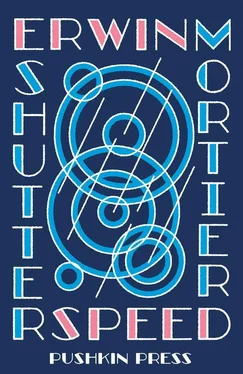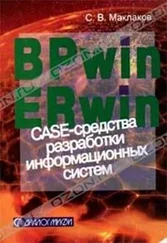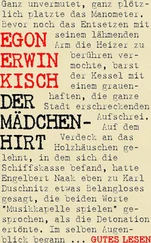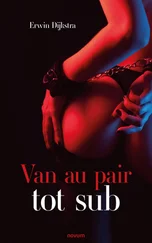‘Still, it’s a bit odd,’ said Aunt. ‘You’d have thought a person had the right to rest in peace until …’ she paused, raising her cup to her lips, ‘until there’s practically nothing left.’
I wondered how much was left of my father. In my imagination the earth under my feet was no more than a thin skin, barely thicker than the ice on the ground during a severe winter. The dead were beneath, drifting like fish in a netherworld of sandy soil and debris, leading an existence devoid of oxygen or hunger. My father was there too, lying on his back with his hands behind his head while he counted the strokes of the church bell, which must have sounded to him like music that had ceased to hold any interest. Perhaps he peered through the chinks between the slabs of the Van Callant vault with the same curiosity that filled me when I peered through the bars of the gate to their ancestral home.
Mr Snellaert, who never missed an opportunity to speechify, assured us that when someone departed this earth he was subsumed into Eternity. The Incandescent Glory of God, he called it. A light so harsh that the wicked would all cover their faces with their hands because they couldn’t stand the glare. Only the righteous would approach the Almighty with an open, steady gaze, and they were pretty thin on the ground.
‘I can think of some among our number who’ll be needing very dark glasses indeed,’ he had concluded, without looking at anyone in particular, although we all felt accused.
‘Another drop?’ offered Aunt Laura, bending over the table with the coffeepot in her hand. ‘Such a shame to let it go cold.’
Hélène nodded. The girl was growing restless, pushing her cup away and jiggling her knees.
‘Je me sens un peu fatiguée,’ I heard her say. ‘Can I go out into the garden?’
Hélène glanced at Aunt Laura.
‘Mais bien sûr,’ said Aunt in a honeyed tone. ‘But p’raps the young lady fancies taking a look around the shop. If she’s careful not to break anything, I mean.’
I could sense that Hélène Vuylsteke did not appreciate the afterthought.
‘Que pensez-vous, Isabeau?’ she asked. ‘The garden or the shop?’
The girl stood up. She folded the raincoat she had kept on her lap all this time, laid it on the seat of her chair and went out into the passage.
‘You run along and keep an eye on her, Joris,’ said Aunt.
I stalled for a bit, although I could tell by the nervous tic in her eyelid that she was eager to have a word with Hélène in private.
‘Joris!’ she repeated, with urgency in her voice.
I moved towards the door exasperatingly slowly.
‘What a slowcoach,’ I heard Hélène say as I stepped into the passage.
A sigh escaped from Aunt, which I did not know how to interpret. Her fingers drummed on the tabletop.
‘I’ve no idea what he’s thinking half the time,’ she said. ‘Sometimes it’s as if the lad lives in a glass box.’
‘What about his mother?’ Hélène asked.
‘I sent her a letter about the headstone. Her brother phoned …’ Their voices dropped.
I didn’t like it when people talked about me behind my back, and it was even worse when they spoke French, which I could more or less follow thanks to Mr Snellaert’s lessons but which made my mouth feel as dry as soft sand. It was worse than ever that afternoon, because as I reluctantly moved down the passage I could hear a high-pitched singsong coming from the shop.
Once my eyes became accustomed to the half-light I saw the girl prancing about in the middle of the shop.
‘Dolly, jamais je t’oublierai,’ she carolled, ‘Dolly, toujours je t’aimerai.’ She had taken a hairbrush from one of the baskets by the door and was holding it upright in front of her mouth.
She waved her free hand up and down in time to the melody, but now and then, when she lost track of the words and hummed uncertainly, it just hung in the air.
She stopped still in mid-performance, made a little bow towards the shop door and spun round. She was looking in my direction, but I wasn’t sure she could see me. Perhaps she just saw my silhouette.
She turned about to face the door again.
‘And now for one of my favourite chansons,’ she announced. ‘Quand le téléphone sonne sonne sonne.’
She seemed neither startled nor in the least embarrassed when I emerged from the gloom of the passage. I don’t know how old she was. Not much older than me, at any rate, perhaps even slightly younger. Girls older than me, I believed, had given up dreaming of stardom long ago, so I found it very odd to see someone like her, who had history running in her veins and the clink of chain mail following her around, pretending to be a pop star.
Perhaps she was still too young to sit at her mother’s dressing table and smear a still foreign femininity on her cheeks, the way the older girls at the convent school suddenly stopped wearing their hair in plaits and started giggling uncontrollably, as though the first stage of growing up was like being tickled.
They always made me feel as if my knees were abnormally big when I strode past the gate, where they would hang around in clusters, sticking out their tongues or taunting me for having freckles and smelling bad.
I felt a pat on my shoulder and air wafting against my cheek as the girl flounced past.
‘We saw the circus arrive,’ she said, trailing her fingers along the edges of the shelves behind the counter.
‘There was an awfully loud noise, and I was scared … It was a lion roaring.’ I could hear her skirt brushing against the large bins of un-roasted coffee.
She came out from behind the counter and surveyed the goods in one of the windows. Aunt thought she had a high forehead, and that it was typical. I thought it was because her hair was pulled flat over her scalp and tied at the back. Hélène Vuylsteke struck me as the sort of governess who would use a hairbrush to punish misbehaviour, but Aunt said people of high birth always had high foreheads. She didn’t know why, it was just one of those things.
‘Too much inbreeding, if you ask me,’ Uncle Werner used to say. ‘Happens with rabbits, too. Not the foreheads, of course — the ears.’
The girl sat on the bottom step of the ladder and reached for the book Mr Snellaert had lent me. She began to turn the pages without much enthusiasm. Now and then I heard her emit a little sigh of boredom, which sounded to me like a personal summons to relieve the monotony of the moment.
In the commotion following their arrival in the shop Aunt had forgotten to lock the glass showcase in which she kept the most expensive items. One of the little doors was ajar. I snatched a few glistening fruits from a jar of sugared cherries and held them out to the girl, in the space between her nose and the book.
She shook her head and pushed my hand away, but I found it hard to believe she was in the least interested in the page she was looking at, which had no pictures on it.
I had another try with a few bright green pellets from a tall canister. Uncle always sang their praises as a sure remedy for a sore throat or dry cough, and when I put three of them in my mouth at the same time to show him how much I believed him I was blown straight to Alaska on a polar wind of peppermint and eucalyptus. This offer, too, was waved away without so much as a glance at me.
As a last resort I turned to the bottles on the top shelf, where Aunt kept her most treasured wares, her essential oils or whatever they were, which she decanted into glass phials with an eye-dropper and sold to customers wishing to give their preserves an extra zest, or to heighten the taste of cakes baked for special occasions and family visits.
‘ Alcohol of orange citrus ’ read one of the labels in Aunt’s spidery hand, and I always wondered how that colourless liquid could possibly smell so strongly of oranges.
Читать дальше












